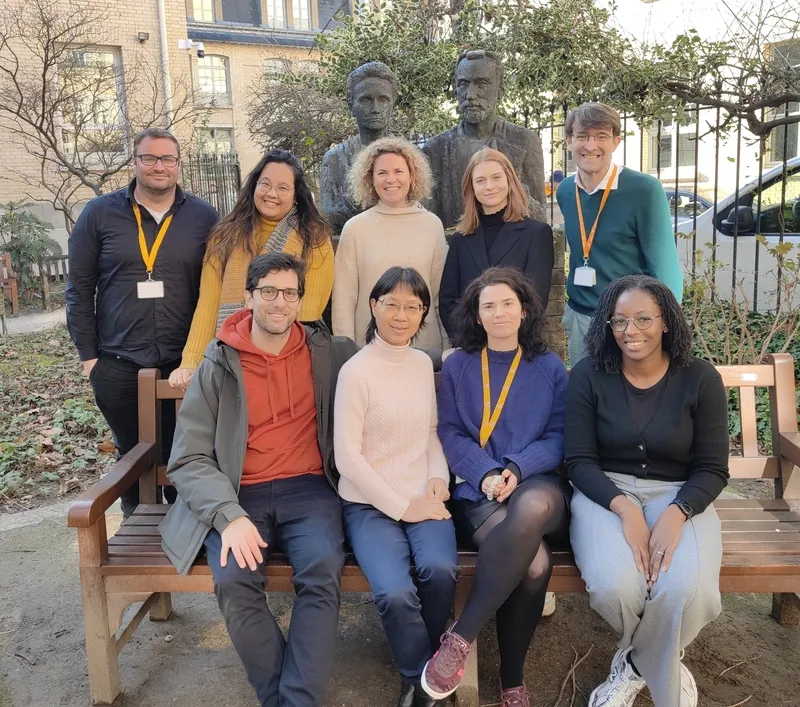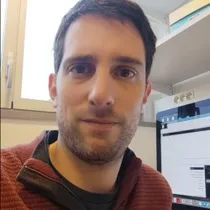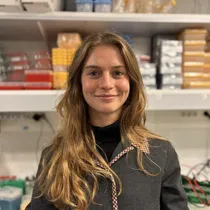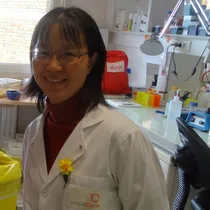Presentation

Our team is passionate and fully committed to the cure against these devastating cancers affecting infants, children, adolescents, and young adults! Thanks to our proximity and close collaboration with the pediatric department at Institut Curie, our work is grounded in a translational ap-proach, which we are eager to share with the families and associations who come to meet us.
Our team focuses on the SMARCB1 gene and associated cancers, encompassing both translational aspects as well as more fundamental research.
Rhabdoid tumors represent a paradigm of SMARCB1-deficient cancers and are among the most aggressive tumors in young children. They can develop in the brain (in this case they are called ATRTs), the kidney, or various soft tissues; in all these locations, they are characterized by a very undifferentiated morphology and the loss of function of a single gene, SMARCB1, which plays a major role in the epigenetic conformation of DNA.
Our laboratory is first focused on understanding SMARCB1-deficient human rhabdoid tumors (or SMARCA4 in rarer cases) in their genetic, transcriptomic, and epigenetic aspects, to better understand the molecular mechanisms underlying their development. In parallel, we aim to un-ravel the origin of the clinical and biological diversity of rhabdoid tumors by using both SMARCB1-deficient human tumors and developing various mouse models targeting SMARCB1 in different embryonic progenitors. The mouse models we have established are particularly relevant for recapitulating SMARCB1-deficient human tumors, especially ATRTs, and offer a unique opportunity to test innovative therapeutic strategies.
Rhabdoid tumors are considered a model of epigenetically-driven cancers due to their very low mutation rate, apart from the bi-allelic inactivation of SMARCB1, which radically alters the epigenome of tumor cells. For this reason, molecules targeting epigenetic actors currently present some of the most promising therapeutic hypotheses for this disease. In this context, we aim both to identify new epigenetic vulnerabilities and to study the intra-tumoral epigenetic heterogeneity of rhabdoid tumors and its potential role in treatment resistance.
Finally, we explore the interaction between rhabdoid tumors and immune cells, in order to better understand how these tumors evade immune surveillance and how to improve their response to immunotherapies.
In conclusion, through our research, we hope to identify potential therapeutic targets to improve the treatment of these rare and aggressive cancers.























